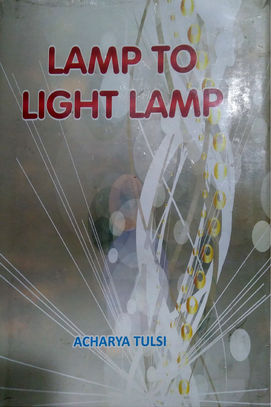Destruction and construction-both are necessary. Without destruction, the chances of construction are reduced. But what needs to be considered is, who is destroyed and where? There are certain expectations associated with construction. Man has in him two types of feelings-positive and negative. The positive point of view or positive thinking or feeling symbolises construction. The disruptive tendency or the negative attitude symbolises destruction. For construction and destruction the words yield and ruin are also used.
The element of permanence is a co-variant of construction and destruction. Matter exists at all times. It leaves its remnants not only after construction but after destruction as well.
Indian culture is a liberal culture. It knows how to assimilate everyone. It has given the chance to allow other cultures to strike roots in its soil. By giving recognition even to matenalists as an independent philosophy, Indian philosophers have proved how universal is their thinking and how clear their vision. Indian sages have entitled even the antisocial elements like thieves and dacoits to join the social mainstream by reforming and purifying hem-selves. The unyielding killers like Arjunamalakar, Dridhaprahari, Ratnakar, Rohineya and other bandits and thieves found the correct direction and became saints and sanyasis. Such incidents in history reveal only liberality of Indian culture.
Whatever man does have two forms—active and reactive. The natural state is that in which man acts as guided by his independent thinking. But when he gets caught in reactive mentality, he loses his sense of distinguishing between what is worth doing and what is not. Are the incidents over the disputed structure at Ayodhya not reactive in nature? Who is getting the benefit of it all? Granted that some people belonging to another religion hurt your religious sentiments and tried to grab by force what is your cultural heritage. But who is to be blamed for it? Why did you allow yourself to become weak? Why did your social and national awareness lie dormant? Blaming others for your own mistake is also a reactive mentality. No society or nation can become strong without changing this mentality.
The possibility of dispute with regard to an individual or a nation on account of differences of opinion, preferences and differences of faith cannot be rejected. There are also ways to settle the disputes. Any dispute would find no ground to persist if we proceed with the intention of bringing about harmony and agreement. But when an uncompromising stance is adopted with regard to the subject of dispute, there is an endless series of acrimony, destruction and killings. A long history of mistakes follows one mistake. The stigma these things leave on the present cannot be wiped out even by many attempts that may be made in future. As long as the traces of that destruction remain, people would blame a particular section of the people are responsible for that history of destruction. Whenever such undesirable attempts were made in the past, when did they ever, get recognised by cultured, refined and thinking people? With regard to such incidents even the opinion of wise people is not positive. Nevertheless, if someone has committed a mistake, who is going to benefit by exhuming the buried corpses?
We have had so many great men like Bhagwan Mahavira, Buddha, Mohammad Saheb, Guru Nanak and others. They preached their followers peace and tolerance. Are those stories reduced to mere grandiloquence? Today, as a reaction to the destruction of one disputed structure, temples are being razed all over the world. Is there any propriety in such acts of destruction? Why were there such reactions in Pakistan and Bangladesh to what happened in India? Why did the Muslims in India follow the trends of destruction in Pakistan and Bangladesh? In the land where the Hindus and the Muslims have lived like brothers in an atmosphere of amity, whose interests would be served by such unfortunate passions of hatred and animosity? If something has got to be destroyed, let it be the destruction of evils, devilish actions and evil thinking. Temples, mosques and other religious places are related to man's faith. Before the construction of temple or mosque, let such a faith be born in the mind of every man which could protect him against the politics of destruction-because, construction may take millions of years, while for destruction, just one moment suffices.
 Acharya Tulsi
Acharya Tulsi
